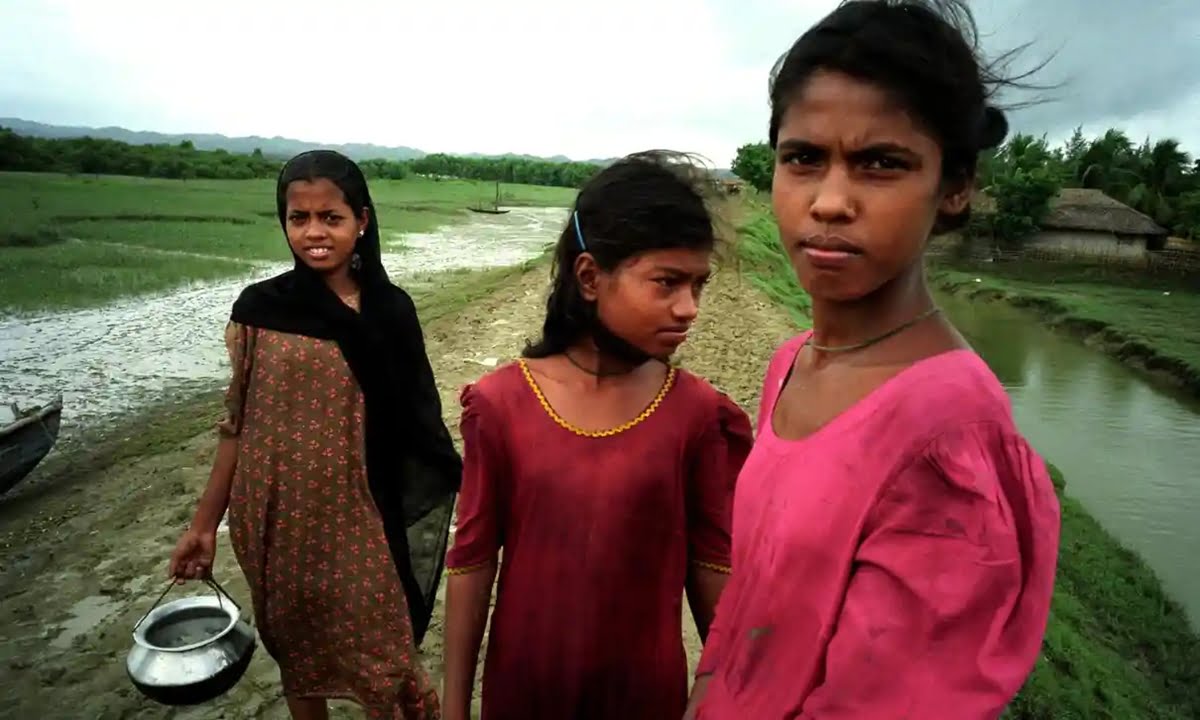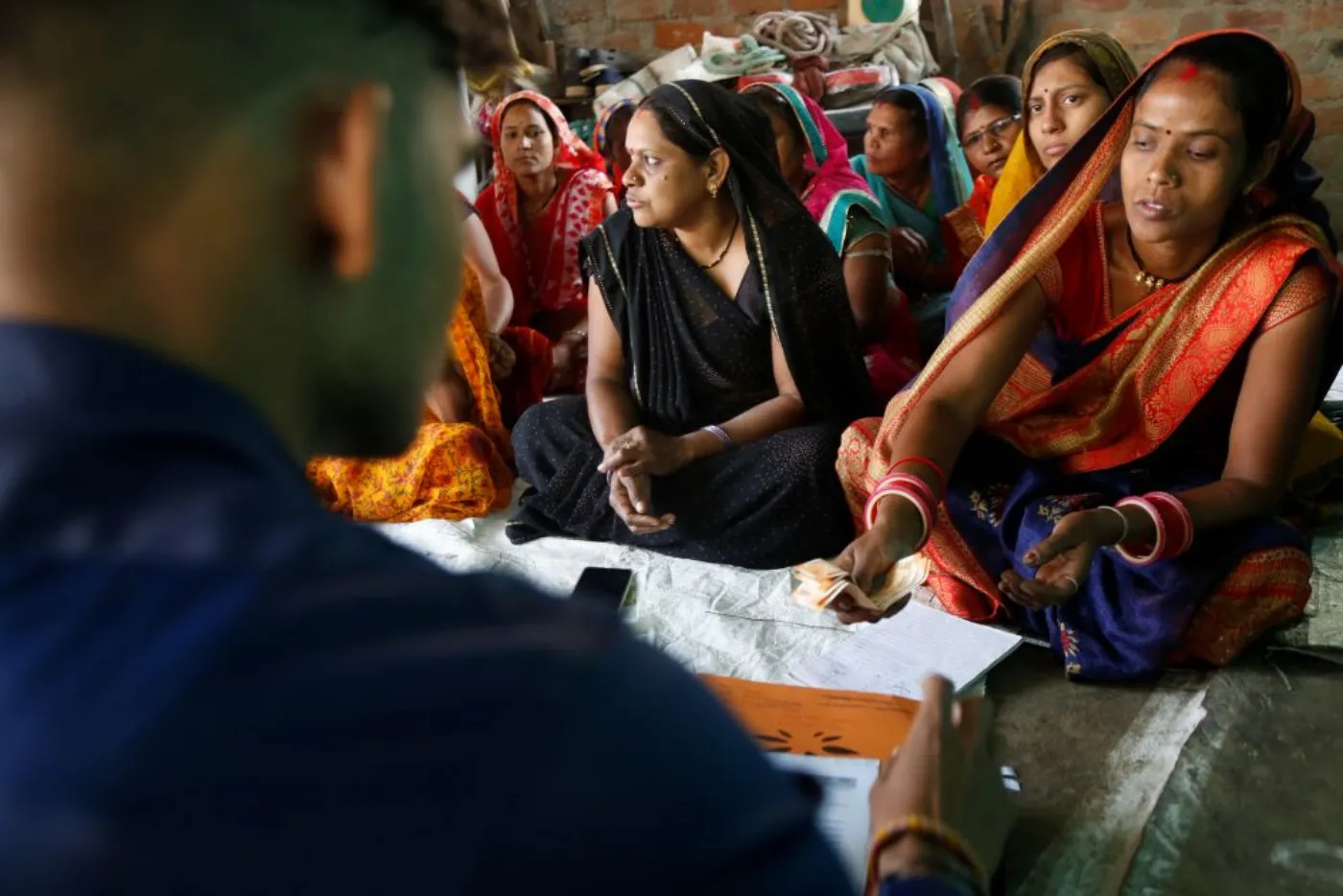The adolescent girls from Latur district in Maharashtra believe that the present COVID-19 situation has not only worsened things for them but also for their families. 15-year-old Meenal Rathod (name changed) a resident of Latur shares her concerns on why the lockdown and migration has created an unsafe environment for adolescent girls in her hometown.
Ever since COVID-19 lockdown was imposed in Maharashtra and across its many districts, Meenal Rathod (name changed) claims her family has been worrying incessantly. Hailing from the village of Faradpur in Latur district of Maharashtra, she says they remind her of how Latur was devastated by an earthquake 25 years ago.
Ever since COVID-19 lockdown was imposed in Maharashtra and across its many districts, Meenal Rathod (name changed) claims her family has been worrying incessantly. Hailing from the village of Faradpur in Latur district of Maharashtra, she says they remind her of how Latur was devastated by an earthquake 25 years ago.
Also read: Understanding How The COVID-19 Crisis Impacted Girls’ Education In India
“I wasn’t born then but my parents often tell us stories of how the earthquake left the entire family out on the streets for a few days. They both tell me that although back then they thought it was the worst time of their lives, it was nothing compared to the present crises they are witnessing. The COVID-19 pandemic reminds them of the helplessness of that period. Only now, it seems to be worse,” she says. She then sums it up by saying that it would be an understatement to say that life in her village has been difficult ever since the lockdown was implemented.
With schools being closed, she cannot meet her friends. “I cannot interact with friends of my group anymore. We cannot talk about or express our opinions and views on various topics as our meetings don’t happen. We are eagerly waiting for the COVID-19 lockdown to be lifted and for our regular interaction to begin again,” she says.
Meenal is referring to an adolescent girls group that was created and facilitated by field workers of Kalapandhari, a project supported by CRY- Child Rights and You. She says about the group, “They would educate us on how to conduct ourselves confidently in society without any inhibitions. We could openly discuss issues that we could not discuss with our parents and relatives. The volunteers helped us find solutions. All of this has come to a halt now. We have no opportunity to talk about our challenges and now along with this platform, the solutions are also gone.”
She adds that during their sessions, they used to engage in different activities, together learn new things and educate themselves in an interactive way. The most common issue discussed in these sessions used to be that of marriage. Since most parents believe that marriage is inevitable, many girls would be married off even before they completed their matriculation. Further, even today, many parents continue to not emphasise enough on their daughters seeking and completing their education, instead focusing completely on getting them married.
With the COVID-19 lockdown, the most common issue that the girls are scared of is that of getting married. Since most parents believe that marriage is inevitable, many girls would be married off even before they completed their matriculation.
“Before lockdown, when any of the girls faced such issues, we would come to know about it in our meetings and talk to the volunteers who would talk to the elders and help us solve the issue. We’re worried, now that we have to face such situations alone,” she says, pointing out that since these discussions have stopped, most girls like her are worried that their parents will start thinking about getting them married, or send them to work somewhere since they are mostly sitting idle at home.
Their parents, she says, would also be invited to be a part of these sessions, where they were explained the importance of not only educating the girl child, but also of not getting minor girls married. They would also try to educate them on why girls should not be engaged in child labour as well. “Unfortunately a majority of us girls are now worried, considering how schools have shut and our parents will not allow us to go back to school when it opens.”
Meenal further shares that their district has been seeing a lot of people from cities like Mumbai and Pune (states that had a predominantly high number of COVID-19 patients) coming back to their ancestral homes in the villages. This has led to the fear that there could be an increased spread of the virus in the villages from those who have migrated back from the cities.
“The authorities of the village have shut the shops and other work places in the village to avoid contact with the people who have come back from the cities. We are not allowed to leave our homes as our parents are worried about our health. As the shops from the village are closed, it is also difficult for us to get rations and other necessary goods,” says Meenal.
Some of them are also facing a terrible financial crisis with everything completely shut which has resulted in the elders getting out of work. So the ones who have the means for now are also looking after the others.
Meenal says that now that she cannot meet the other girls due to physical social distancing norms, they are trying to stay in contact through calls. “But again as many girls do not have phones we are still thinking about how to keep in touch with each other,” she adds.
Meenal’s friend, who did not want to be identified, says that almost every household in her village is discussing marriage. She believes some marriages may already have been conducted.

“Many parents are considering the COIVD-19 lockdown a good opportunity (to get us married) to save money as the number of invitees are restricted. The lockdown is a sure shot way of marrying off their daughters at a much lower cost. I fear that many 14-15 year old girls belonging to poor households are likely to get married during the lockdown,” she says.
The COVID-19 lockdown has also taken a toll on the mental health of the girls, who had found solace in the sisterhood they had forged in their meetings. “The lockdown has had a negative impact on our minds. The first few days of the lockdown were good as everyone got to spend time together, but now petty fights have started in most of our homes,” she sums up.
Also read: The Status of India’s Muslim Women Amid State-Directed Violence and COVID-19
The COVID-19 lockdown has also taken a toll on the mental health of the girls, who had found solace in the sisterhood they had forged in their meetings. “The lockdown has had a negative impact on our minds. The first few days of the lockdown were good as everyone got to spend time together, but now petty fights have started in most of our homes,” she sums up.
Kreeanne Rabadi, Regional Director, CRY-West says that the organisation has been working in Latur for a number of years, but the COVID-19 pandemic has resulted in a setback, and disrupted the protective environment that was enabled for adolescent girls. She asserted that they were closely working with Village Child Protection Committees (VCPCs) to monitor the situation.
Mamta Sen is Senior Manager, Media Advocacy at CRY. CRY – Child Rights and You is an Indian NGO that believes in every child’s right to a childhood – to live, learn, grow and play. For over 4 decades, CRY and its 850 initiatives have worked with parents and communities to ensure Lasting Change in the lives of more than 3,000,000 underprivileged children, across 19 states in India. They can be found on Twitter, Instagram, Facebook and LinkedIn.
Featured Image Source (Representational): Guardian




